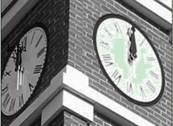题目内容
B
When a rather dirty, poorly dressed person kneels at your feet and puts out his hands to beg for a few coins, do you hurry on, not knowing what to do, or do you feel sad and hurriedly hand over some money? What should our attitude to beggars be? There can be no question that the world is full of terribly sad stories. It must be terrible to have no idea where our next meal is going to come from. It seems cruel not to give some money to beggars.
Certainly, most of the world’s great religions (宗教) order us to be open-hearted and share what we have with those less fortunate than ourselves. But has the world changed? Maybe what was morally (道德方面) right in the old days, when one knew exactly who in the village had suffered misfortune and needed help, is no longer the best idea. Quite a few people will not give to beggars. Let us look at their arguments.
First, some believe that many city beggars dress up on purpose to look pitiable and actually make a good living from begging. Giving to beggars only encourages this sort of evil (恶行). Secondly, there is the worry that the money you give will be spent on beer, wine or drugs. Thirdly, there is the opinion that there is no real excuse for begging. One might be poor, but that is no reason for losing one’s sense of pride and self-dependence.
Related to this is the opinion that the problem should be dealt with by the government rather than ordinary people. Some people think beggars should go to the local government department and receive help.
It is hard to come to any final conclusion; there are various cases and we must deal with them differently. A few coins can save a life in some situations, and even if the money is wasted, that does not take away the moral goodness of the giver.
59. What is mainly discussed in the passage?
A. Moral deeds of people. B. Religious activities of the church.
C. Moral goodness of the giver. D. Arguments on giving to beggars.
60. What can we infer from the sentence “But has the world changed?” in the second paragraph?
A. People no longer know who suffers misfortune in the village.
B. Some people will not do what was morally right in the past .
C. We don’t meet with those who need help any more.
D. Now it is the government’s duty to help the beggars.
61. Which of the following is NOT mentioned in the passage?
A. Some people dress up to pretend to be beggars.
B. Some beggars want money to help their children go to school.
C. Some beggars use the money to buy drugs.
D. Some beggars have no excuse for begging.
62. In the last paragraph, the writer thinks that it is hard to come to any final conclusion, because______.
A. the cases can be so different
B. there are so many beggars
C. there is so much money wasted
D. there are so many different arguments
59---62 DBBA
解析

 芒果教辅达标测试卷系列答案
芒果教辅达标测试卷系列答案“What’s in a name?”According to Shakespeare’s Romeo and Juliet, there is not too much. “That which we call a rose by any other name would smell as sweet. ”But Shakespeare may have been wrong. In most cultures, names matter a great deal.
Americans choose names for their children with care. Parents usually think about the impression a name gives, not its meaning. Most Americans would consider a“Jennifer”more attractive than a “Bertha”, for example. The last name, or, surname, must also be considered when choosing a first and middle name. A name like Lester Chester Hester would sound poetic, but odd. Parents would avoid names that remind them of people they don’t like. On the other hand, people might name their children after a respected elderly relative or even a famous person. The popularity of certain names can change with each new generation. Names that were once common, like Fanny or Elmer, sound old-fashioned today. But other names—like John and David, Mary and Sarah—have stood the test of time and continue to be favorites.
People in America don’t always call their friends and relatives by their given names. Instead, they often use nicknames. Sometimes nicknames are short forms of a longer name. For instance, a girl named Elizabeth may be called Lisa, Beth or Betsy. As children grow up, they may decide for themselves which nickname they wish to be called. Some people just go by the initials of their first and middle names, like B. J. or R. C. And of course, people may call their children or their sweethearts other special nicknames. Often they have a “sweet” flavor, like Honey or Sugar. What’s in a name? A world of significance. So if you’re choosing an English name for yourself, take care to choose a good one. A made-up name could sound strange to native English  speakers. And a translation of your Chinese name may not make an appropriate name, either. But a good name can leave a positive and lasting impression. As an American politician once said,“In real life, unlike in Shakespeare, the sweetness of the rose depends
speakers. And a translation of your Chinese name may not make an appropriate name, either. But a good name can leave a positive and lasting impression. As an American politician once said,“In real life, unlike in Shakespeare, the sweetness of the rose depends upon the name it bears.”
upon the name it bears.”
【小题1】What does the underlined sentence in paragraph 2 mean?
| A.People change names in order to be popular with the new generation. |
| B.Names will change by themselves in order to be popular. |
| C.Some names may no longer be popular among the new generation. |
| D.No names can stand the test of time. |
| A.the impression a name gives is more important than its meaning |
| B.you can name after a well-known person |
| C.surname should be paid attention to |
| D.you can create a name that is special |
| A.nickname | B.the first letter | C.short form | D.title |
| A.Bertha | B.Fanny | C.Yunyun | D.Elizabeth |
| A.Names have great significance to Americans. |
| B.Names change when time goes by. |
| C.Chinese people should be careful when choosing their English names. |
| D.Roses smell sweet by any other name. |
